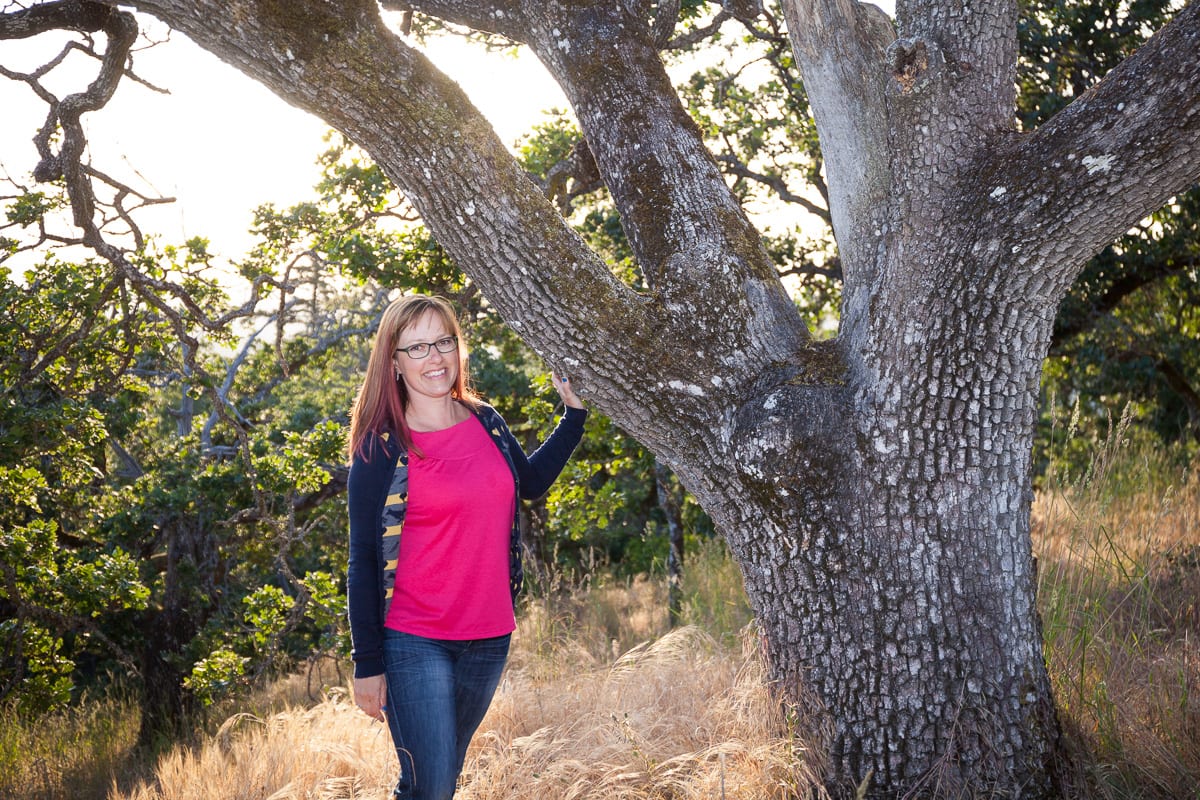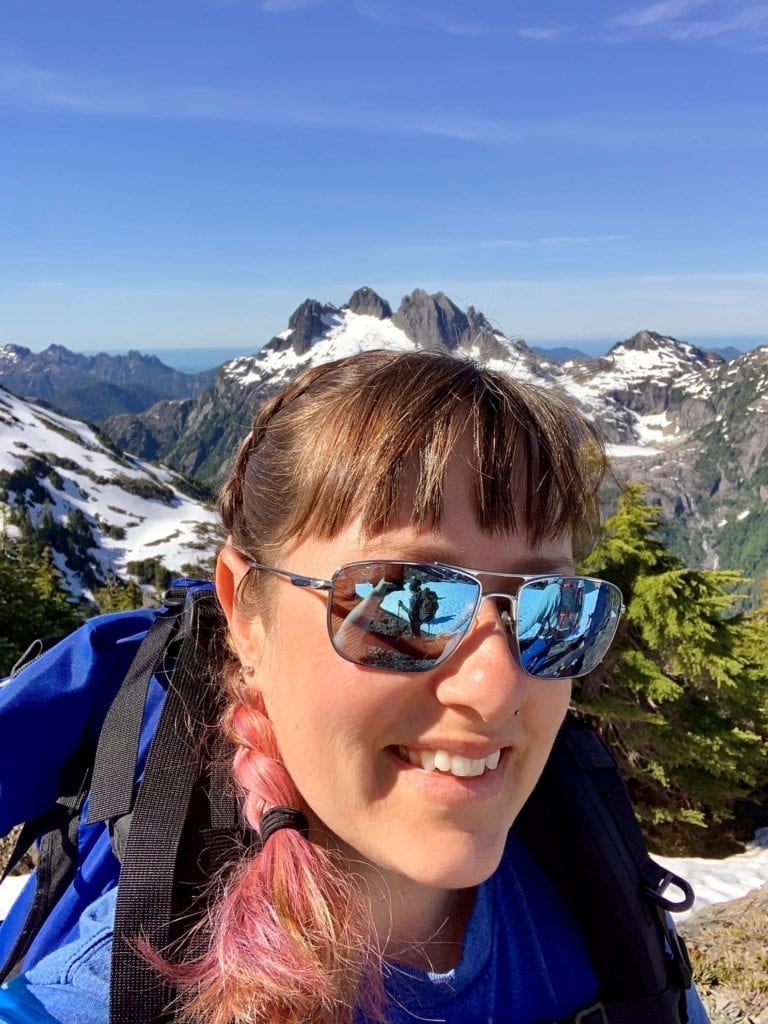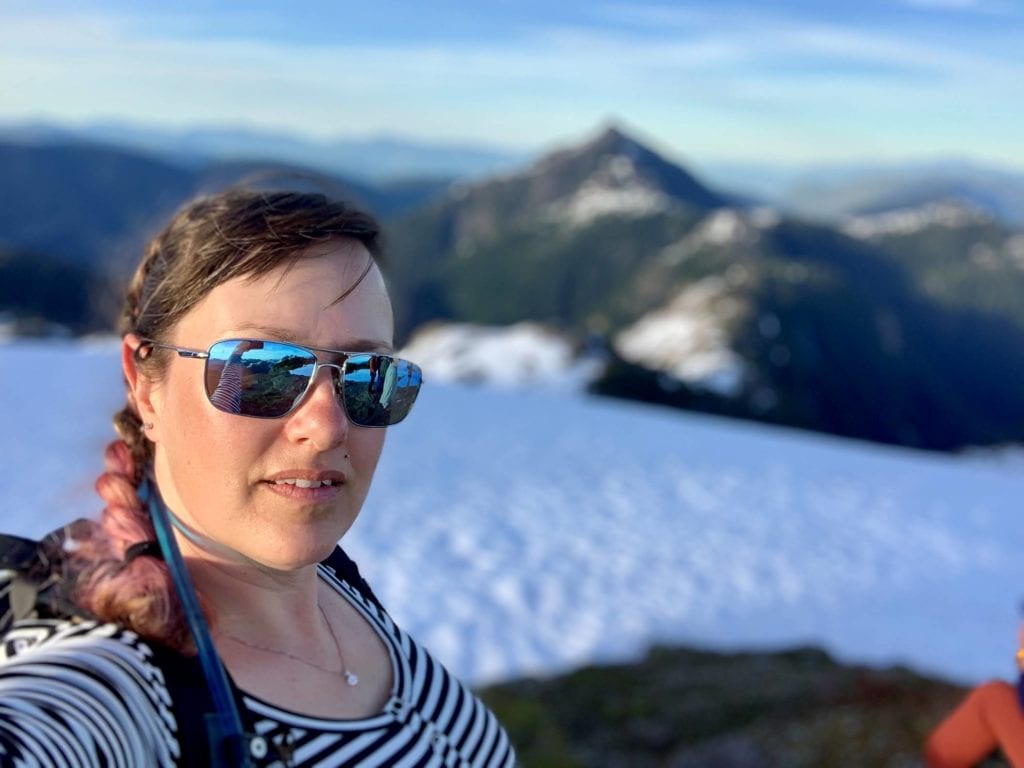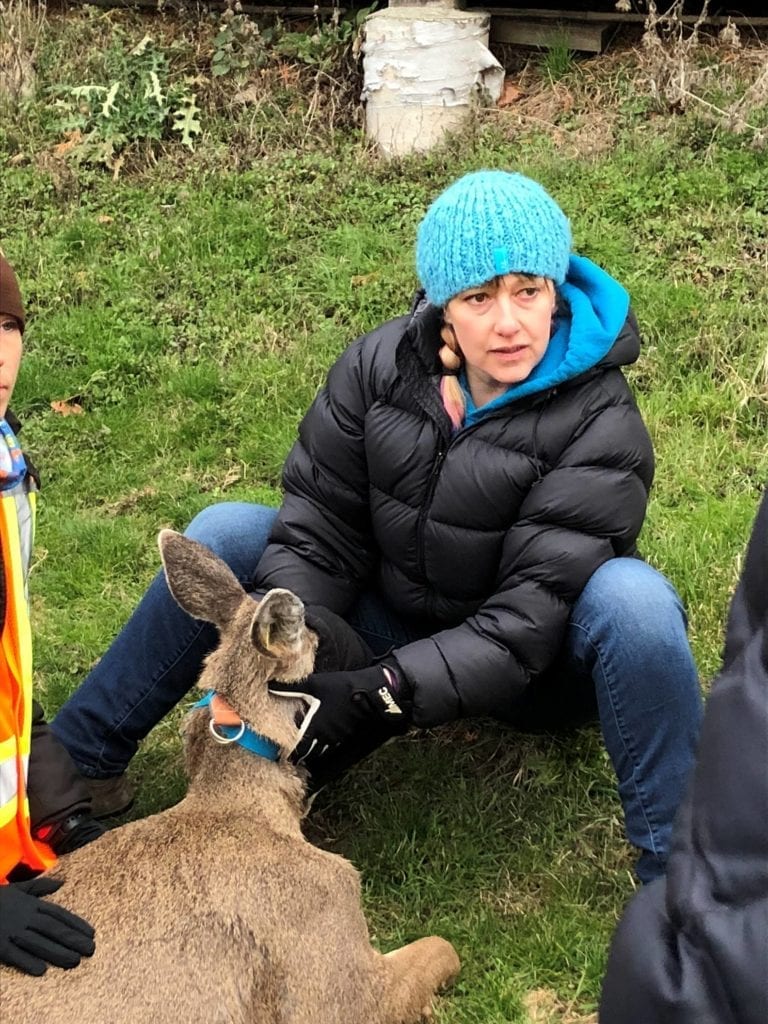
This year’s winner (2020-2021) of the Dr Ian and Joyce McTaggart Cowan Scholarship in Environmental Studies at the University of Victoria is Alina Fisher. Throughout her life, from childhood to motherhood, nature has played an important role in Alina’s life. She is now excited to be working on her PhD, which is focused on her interest in wildlife biology, ecology and science communication.
We had the pleasure of asking Alina a few questions.
How did you become interested in nature?
I’ve been interested in nature for as long as I can remember. I’d come home with interesting rocks, feathers, and chunks of wood just to be able to show my mother. And I was always bringing home injured wildlife (mice, birds, snakes) to try to nurse them back to health – much to my poor mother’s chagrin. I even ended up with a menagerie at home at one point that included not just a dog and cat, but also a budgie, a rabbit, a ferret, and a number of gerbils. Again, much to my mother’s chagrin. LOL.
 We left Romania in my early childhood and lived in Israel and Greece before Canada welcomed us as immigrants, but what I remember most through upheaval and the need to learn new languages with each change was that the natural world was a constant for me. I would find the beauty in pebbles, in flowers (likely what an adult would have deemed weeds), how different plants looked and felt, and what wildlife I could see. These were not things apart from me, but something I was a part of. Something I am a part of and always will be. I never feel as good as when I’m outside (with my husband and daughters now) in a quiet meadow surrounded by forest, with the sun shining down on me.
We left Romania in my early childhood and lived in Israel and Greece before Canada welcomed us as immigrants, but what I remember most through upheaval and the need to learn new languages with each change was that the natural world was a constant for me. I would find the beauty in pebbles, in flowers (likely what an adult would have deemed weeds), how different plants looked and felt, and what wildlife I could see. These were not things apart from me, but something I was a part of. Something I am a part of and always will be. I never feel as good as when I’m outside (with my husband and daughters now) in a quiet meadow surrounded by forest, with the sun shining down on me.
Tell us about your research work?
My husband and I came to Victoria in 2004 when he began his PhD. Since then, we became parents to two lovely young ladies, and after acting as their primary caregiver for the first decade of their lives, I was excited to have the opportunity to start my own PhD at University of Victoria.
My PhD research is looking at the effectiveness of conservation of wildlife in the Canadian Rocky Mountains, at the social dimensions of co-existence or conflict with wildlife, and how we communicate about the science of conservation.

I believe strongly in public service and so I am an active member of the University of Victoria’s Speaker Bureau, talking about these issues to various public groups spanning schools, clubs, NGOs and retirement communities. I would love to be able to apply my research to inform more effective conservation of Canada’s at risk wildlife species. I also hope to continue to work with community partners and policy-makers to help conserve our iconic species for future generations.
Thank you again so much for your generous support of me and my research.
Why do you value the work of The Nature Trust of BC?
Conservation and the work of The Nature Trust is important because of the extent and severity of human impact. Humans have fragmented habitats and changed landscapes entirely, we’ve driven some species to local—or complete—extinction, which has changed ecological communities. We’ve also unleashed pervasive indirect effects like climate change that puts pressure on where species can continue to live.
Restoration is extremely important for mitigating these effects, but in many cases not causing the damage in the first place is most effective at maintaining biodiversity and healthy ecosystems. And so it’s important to conserve space for nature. Often times these protected areas are extremely important for maintaining endemic species, ensuring ecosystem function, and as important habitat and corridors for wildlife.
 Humans and wildlife share the same landscape, and the key to ensuring continued coexistence is by a combination of 1) land sharing and land sparing (where we share some landscapes, and where we have landscapes protected for nature) and 2) by protecting natural space from alteration or destruction (for the benefit of wildlife and ecosystems).
Humans and wildlife share the same landscape, and the key to ensuring continued coexistence is by a combination of 1) land sharing and land sparing (where we share some landscapes, and where we have landscapes protected for nature) and 2) by protecting natural space from alteration or destruction (for the benefit of wildlife and ecosystems).
People connecting with nature is an important piece of the puzzle for conservation because people are healthier and happier when they can connect to nature, and the will to conserve natural spaces is fostered by experience of and exposure to it. That is, people don’t protect what they don’t value.
We need to have places that inspire people through the inherent beauty of nature, while also ensuring there is space to conserve wildlife. Thankfully those things can go hand in hand.
*Dr. Ian McTaggart-Cowan was a scientist, researcher and director of The Nature Trust. This scholarship in honour of him and his wife Joyce recognizes conservation studies at the University of Victoria.
